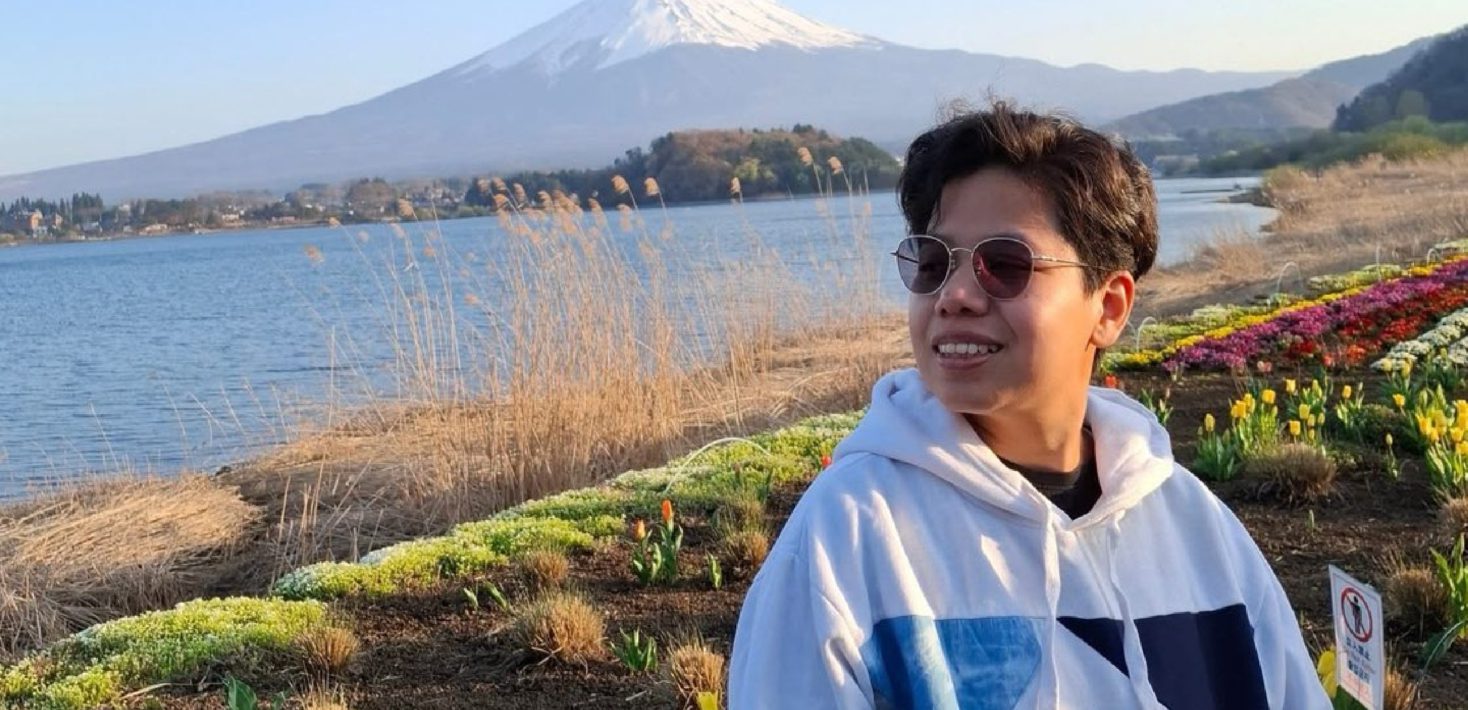“It’s exactly what Amnesty has always campaigned for — that no one should be imprisoned or prosecuted for exercising political expression.”
These are the words of Alisar Bindusa, a former member of the Law Long Beach volunteer legal group, and now Activism Officer at Amnesty International Thailand.
On 6 August 2025, at 9:00 a.m., the Phatthalung Provincial Court will read the appeal verdict in the case of Alisar Bindusa, together with Chompunut, a PhD student at Prince of Songkhla University, and Supakorn Khunchit, a graduate from the same university. They face charges under Section 112 (lèse-majesté), Section 116 (sedition, subsections 2 and 3), and Section 14(3) of the Computer Crimes Act.
The case stems from a complaint filed by a police officer from Phatthalung Police Station, alleging that the three had ridden around town late at night on 24 November 2020 taking photographs of various locations. Prosecutors charged them with two counts:
- Posting five images on the “Phatthalung Liberation” Facebook page, and
- Posting fifteen images on the “Democracy in the Deep South” Facebook page.
On 13 February 2024, the Criminal Court dismissed the charges, ruling that the prosecution’s evidence was not strong enough and that the case carried severe penalties.
Nevertheless, the three defendants have all pleaded not guilty and vowed to continue fighting the case.
From the Sea to Human Rights
Alisar says her journey into human rights work began with her love of seafood and the sea. From high school, she joined youth camps and activities, first focusing on natural resources, the environment, and youth participation in southern Thailand.
“In the early days as a student, I created learning spaces around law and social issues in Songkhla, because I was studying law. Back in high school, I also worked on the ‘Youth Charter’ with the Beach for Life group, collecting young people’s opinions about what they wanted the beaches to look like, and turning those ideas into a youth constitution.”
By 2017–2018, large development projects like the proposed Chana Industrial Estate and Thepha coal-fired power plant had sparked community protests. Alisar recalls inviting fellow students out of the classroom to link up with local communities.
“We created a ‘Community Rights Classroom’ for coastal villages, using law as a tool for people to understand and defend their rights.”
Clashes with Authority
This period also overlapped with the political environment after the 2014 military coup led by General Prayuth Chan-ocha. In 2018, Alisar herself was charged with violating NCPO orders for joining protests marking the fourth anniversary of the coup.
“That case was dismissed in 2023 — after almost five years of fighting it.”
Despite the risk, she continued her youth organising — from campus activities to social trips — until the nationwide youth-led protests of 2020.
“In 2020–2021, I helped people facing political charges. I worked as a paralegal, assisting lawyers and coordinating legal networks. Then in 2021, I found out that I had been charged myself.”
Fighting the Case
Alisar notes that the first court already dismissed her case.
“But it wasn’t because they said we did nothing wrong. The court dismissed it because the prosecution’s evidence was weak, and the charges carried very heavy penalties. So the court gave us the benefit of the doubt. Even then, the court issued detention warrants and we only got bail afterwards.”
“We didn’t commit the offences they accused us of. If I could go back in time, I wouldn’t say that I shouldn’t have done human rights work just because it led to charges. I believe the issues we raised are exactly the issues we should be free to raise.”
“It’s what Amnesty has always campaigned for — that no one should be imprisoned or prosecuted for political expression.”
A Sense of Duty
For Alisar, activism is not a choice but a duty.
“Organising rights classrooms or youth activities is simply fulfilling my responsibility to human rights.”
She often tells young people the same thing:
“I always remind youth in our rights classrooms — what you are doing, whether you face charges or not, is an exercise of your human rights. It is claiming your rights against the state, which has the responsibility to respect, protect, and fulfil them. Until our rights are fully realised, until violations stop, it is our duty to use our rights and to demand them.”
The Bigger Picture
According to Thai Lawyers for Human Rights, since the youth-led protests began in 2020:
- At least 1,974 people have been prosecuted for protest-related political activities.
- 280 people face lèse-majesté charges under Section 112.
- At least 50 people are currently imprisoned, including 32 under Section 112.
Amnesty International continues to call on Thai authorities to drop all charges against peaceful protesters, including those prosecuted under lèse-majesté, and to release those detained under such laws.
Pressed for Time?
Stand up for human rights with these quick and easy actions
Tweet for us
Follow Us
Latest human rights news, stories, and actions
Join the conversation
@amnesty
Share our story
This is why we do what we do


